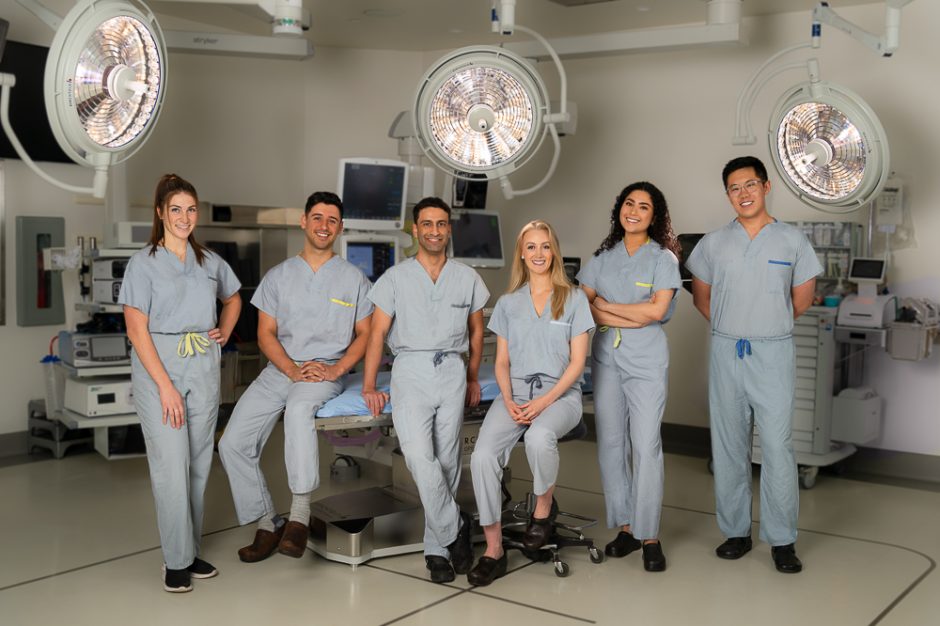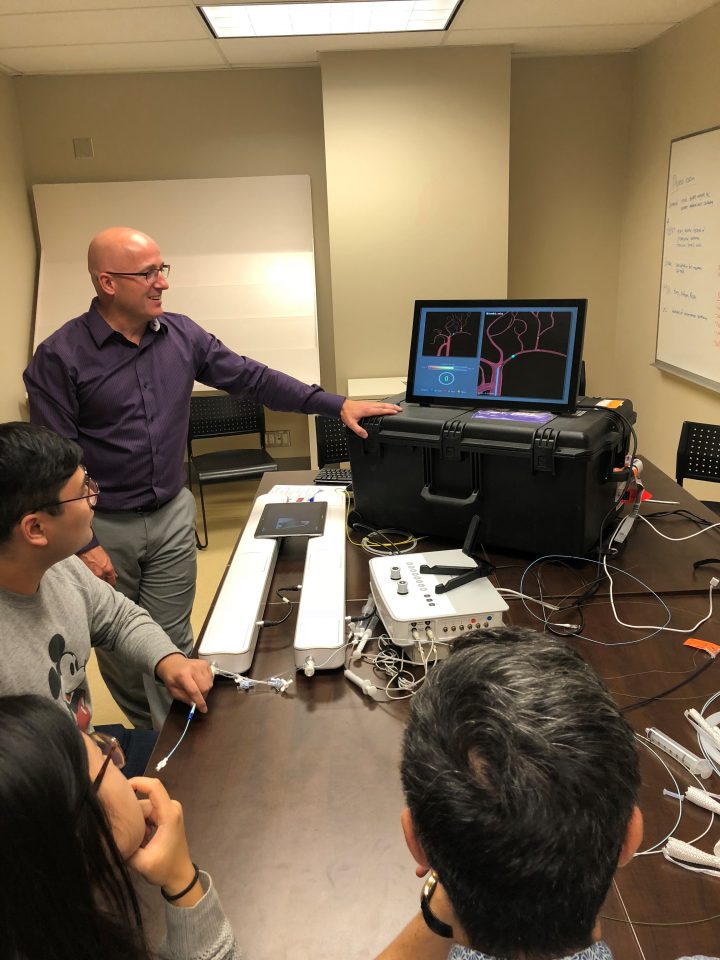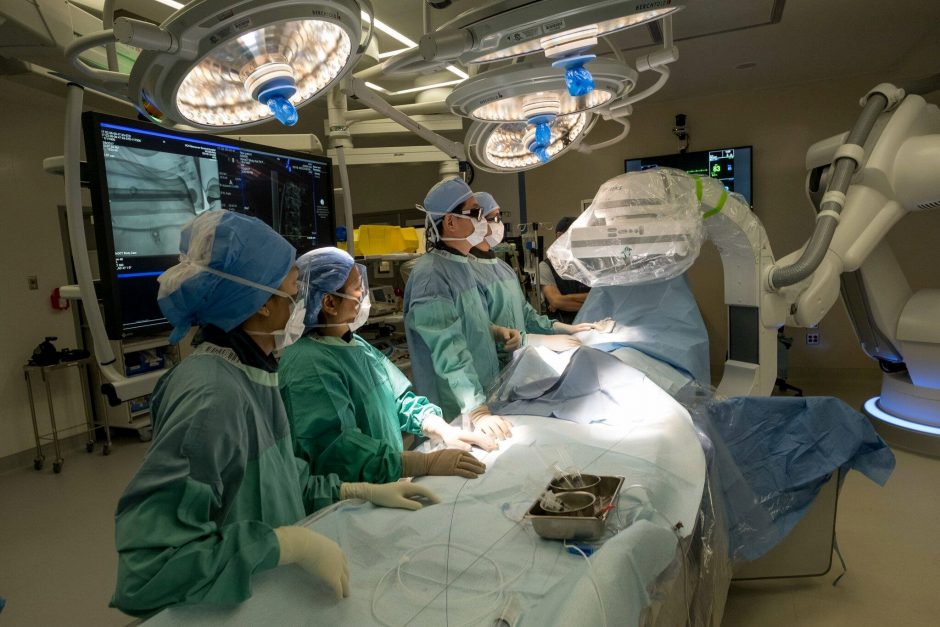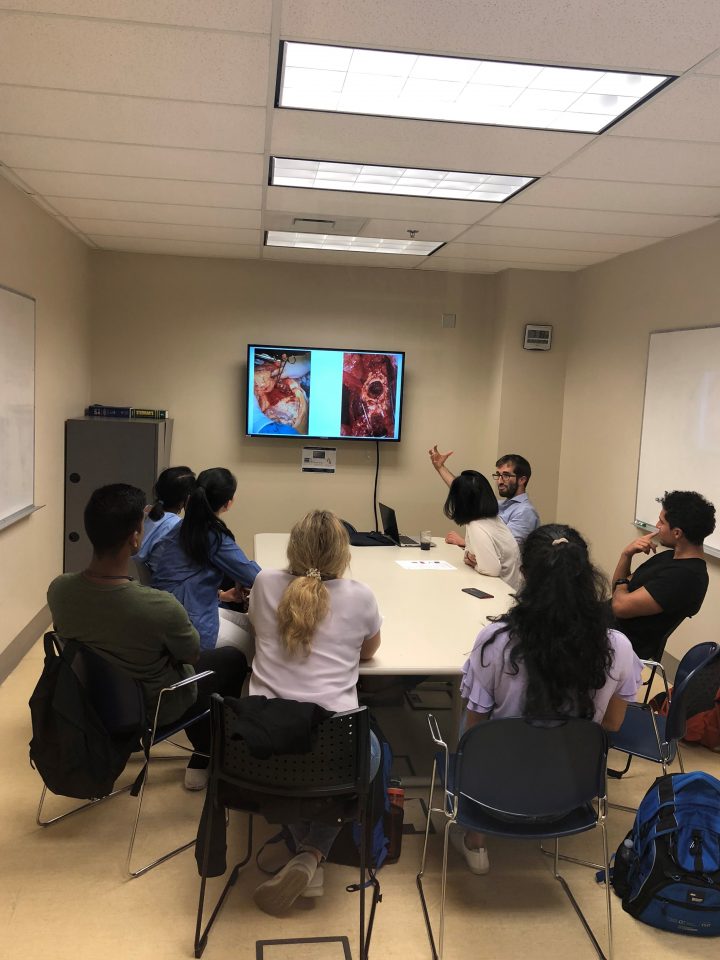Program Description
The first 2 years of the 5 year program, residents participate in the Surgical Foundations Program with all other surgical residents at UBC with weekly seminars, technical skills laboratory sessions, online case-based learning modules, Principles of Surgery Examination Review Lectures and a series of formative assessments.
For the entire 5 years of the program, residents will also participate in academic half-day sessions in vascular surgery (seminars, open surgical and endovascular simulations), weekly vascular city-wide rounds, hospital-based M&M rounds and monthly journal clubs. Research is a mandatory component of the residency training program. Residents are encouraged to pursue scholarly work both longitudinally through the program as well as during the dedicated research time.
All core vascular rotations are based at Vancouver General Hospital, St. Paul’s Hospital, Kelowna General Hospital, Royal Jubilee Hospital and Royal Columbian Hospital. Other in province or out of province electives are also possible.
Surgical Foundations
The Surgical Foundations exam is a Royal College examination that takes place in the spring of PGY 2. Passing this exam is a pre-requisite for all surgical residents to take the final specialty training exam. The Surgical Foundations Program at UBC is a longitudinal series of seminars and workshops that take place in the first two years of residency training.
CRASH
The Surgical Competencies in Resuscitation and Stabilization of Hospital Patients (CRASH) Course is a 1-month modular curriculum that emphasizes key cognitive and technical competencies in caring for unstable patients. These include in-depth comprehension of essential scientific literature, critical appraisal skills, fluency in resuscitation algorithms in trauma and critical care, familiarity with technical aspects of resuscitation and effective communication and management skills in high intensity situations. The course takes place in Block 4 of PGY 1 for all surgical residents.
Application & Eligibility
All Canadian medical school graduates must apply through the Canadian Resident Matching Service (CaRMS). Details on how to apply through CaRMS can be found on the CaRMS website. The program does not accept clinical or research fellows at this time.
Program & Curriculum Information
Current Residents

Resident Research
Residents interested in participating in or collaborating on research projects should contact Dr. Konrad Salata at konrad.salata@ubc.ca.
CIP
The UBC Clinician Investigator Program (CIP) is an opportunity for UBC residents to pursue Master, PhD or postgraduate studies through a RCPSC accredited program. CIP is a fully funded two-year program that allows UBC residents the unique opportunity to gain research experience in world-class research facilities both locally and internationally. Residents at all stages of their residency training can apply to the program by the November 1st deadline each year.
For more information about the program and application process, visit the UBC CIP website.
Resident Wellness & Respectful Environments
The UBC Vascular Surgery Residency Program is a community of learners, faculty and staff who share responsibility for creating and maintaining a positive, inclusive, learning and work environment where all participants are valued and treated with respect. There is a Resident Counselling and Peer Support Office committed to ensuring resident wellbeing as well as resources to report Learner Mistreatment.
Resources
Inclusivity in the Learning Environment
Resident Policies & Resources
Exams
Surgical Foundations exam – PGY 2
Vascular Surgery In-Training Examination – annual PGY 1-5
Vascular Surgery Royal College Exam – PGY 5
Teaching Resources
Senior Administrative Assistant
Jenny Salvatierra
Program Director
Dr. Jonathan Misskey
.
.
.
Resident Wellness
The UBC Vascular Surgery Residency Program is a community of learners, faculty and staff who share responsibility for creating and maintaining a positive, inclusive, learning and work environment where all participants are valued and treated with respect.


